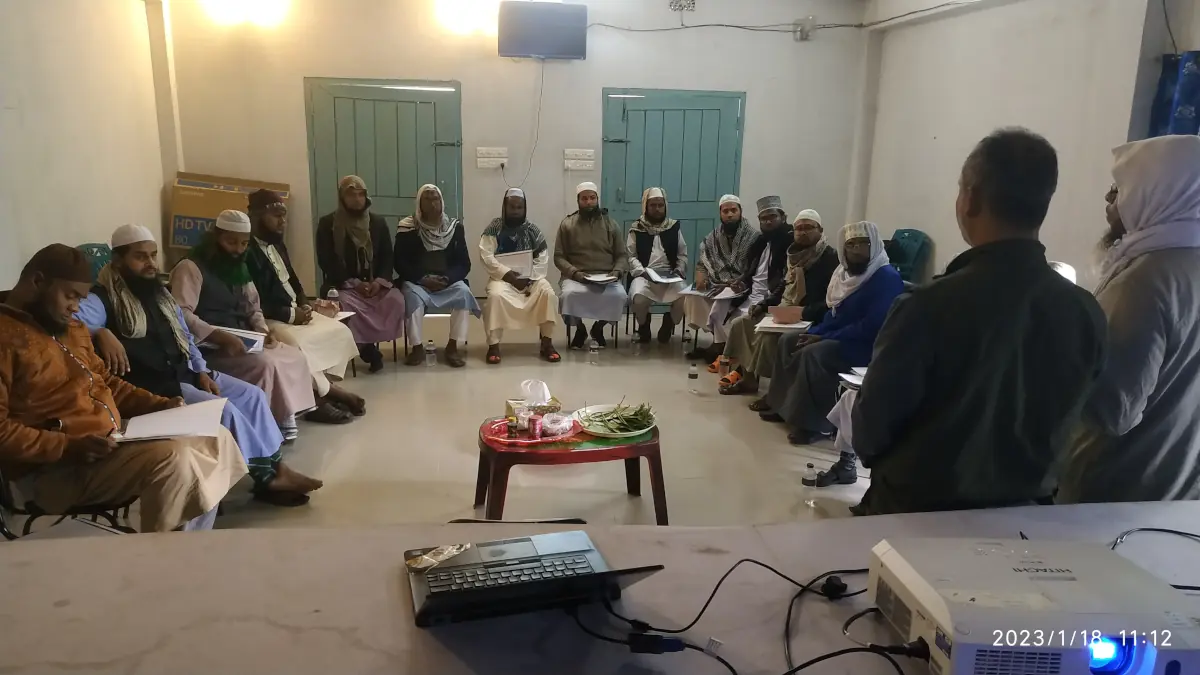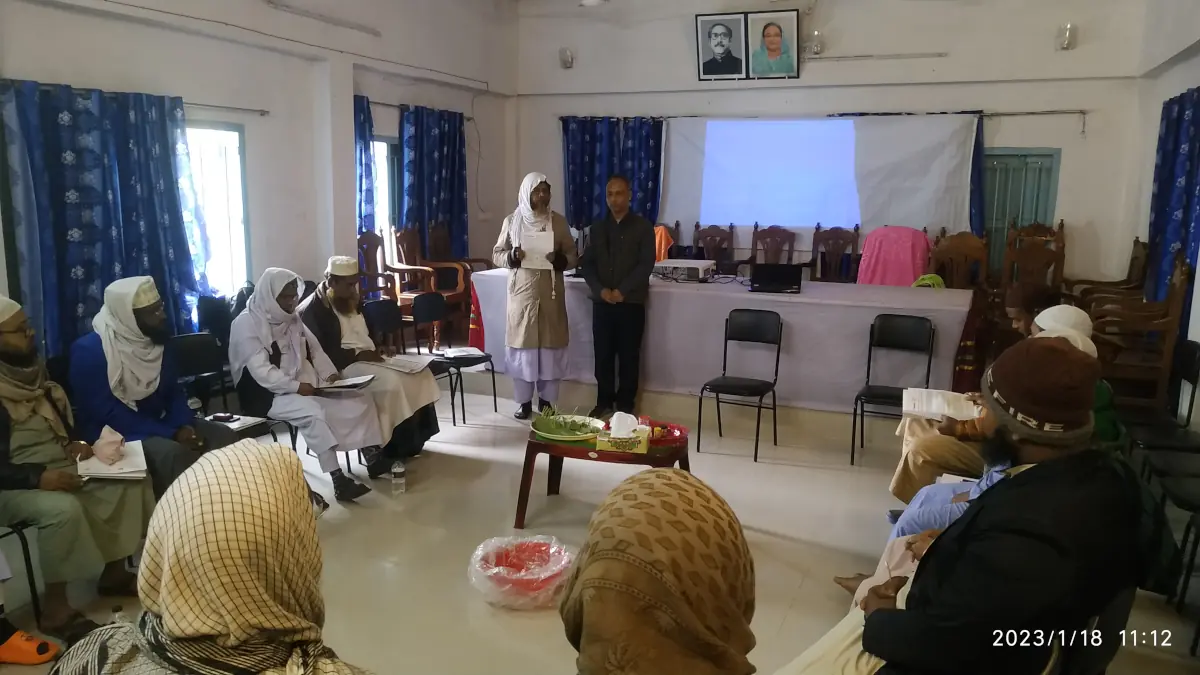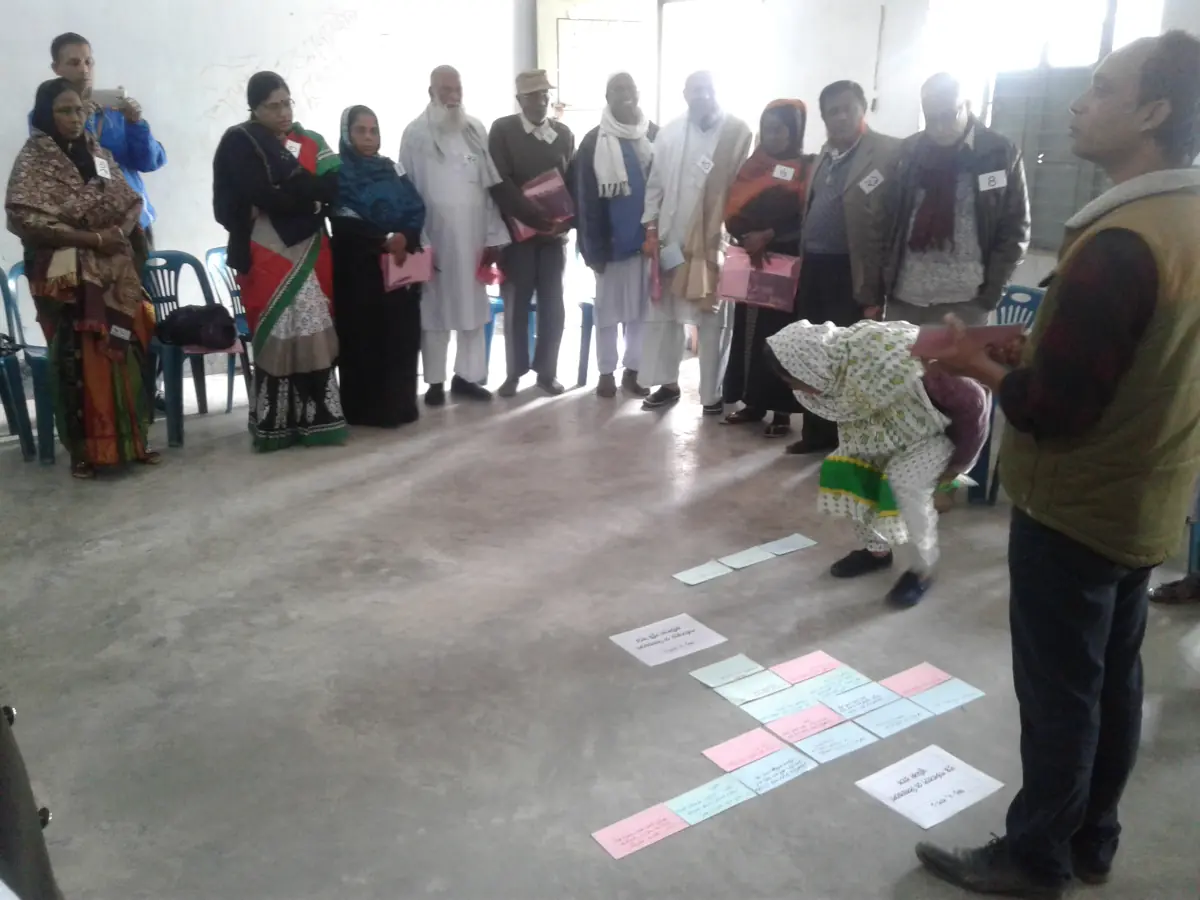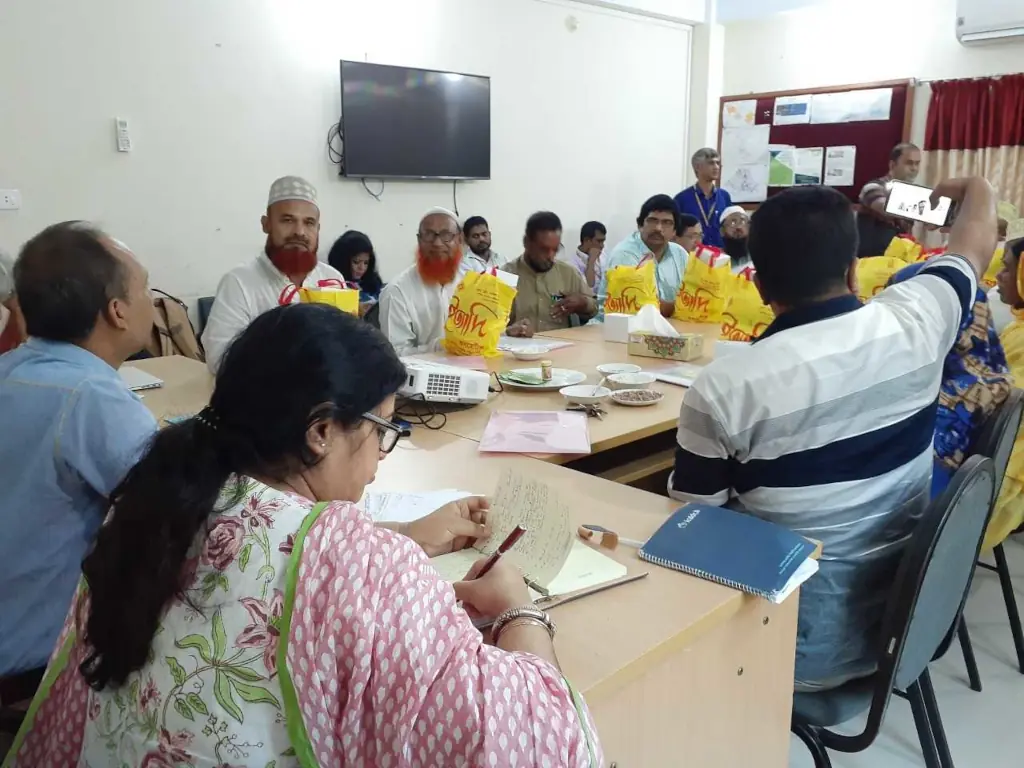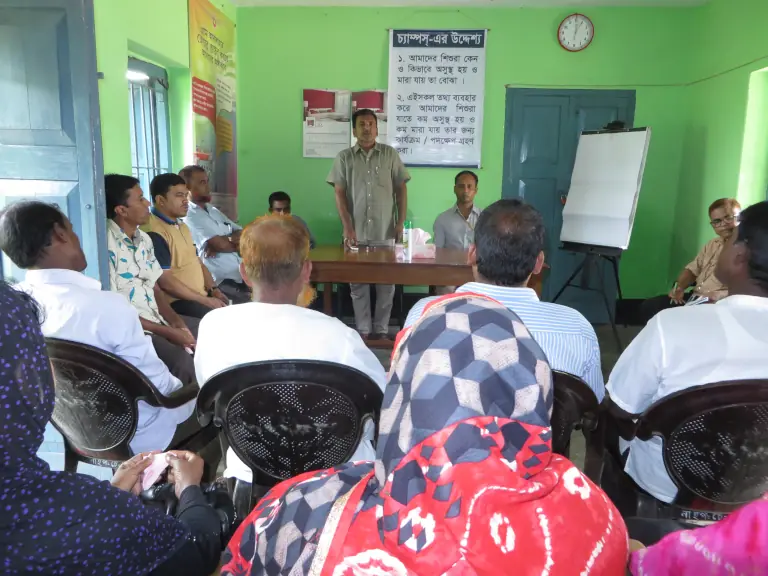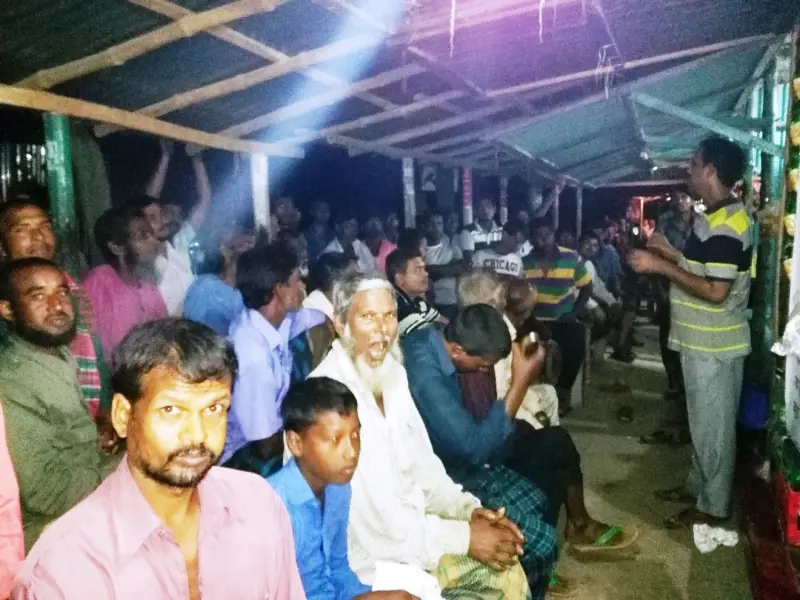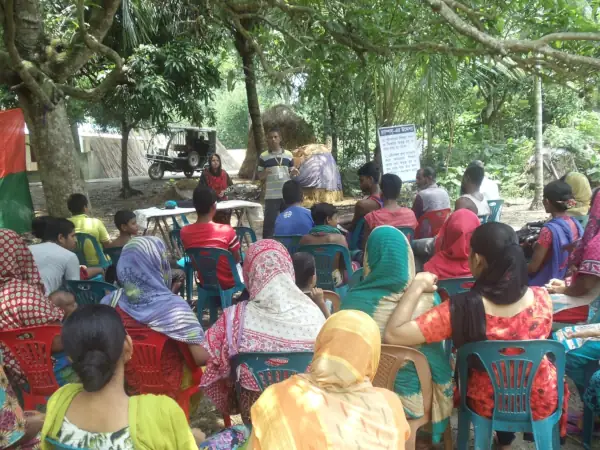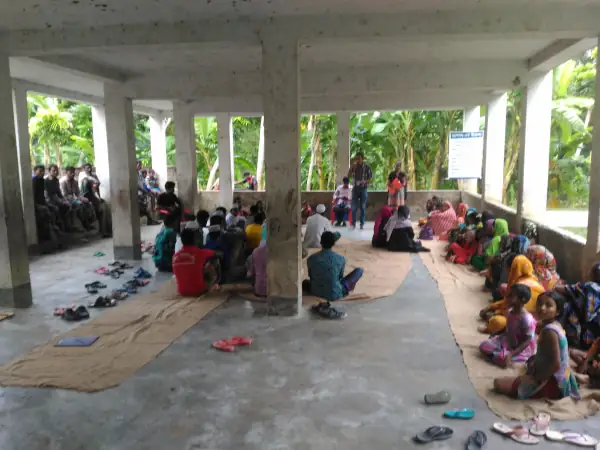Social and Behavioral Science (SBS)
The overall goal of the CHAMPS Network is to provide accurate, timely and reliable data on the identification of pregnancy and birth outcomes, and the precise causes of stillbirth and death for children under age five. In countries like Bangladesh, where little data are available, CHAMPS network offers a post-mortem procedure named Minimally Invasive Tissue Sampling (MITS), to determine the etiology of death. However, in a culturally sensitive social structure, post-mortem autopsy is not usually acceptable. People often confuse MITS with full autopsies, and many families may not provide consent for the procedure.
In order to explore the feasibility of pregnancy surveillance and child mortality surveillances that uses MITS, Social and Behavioral Science (SBS) is necessary to understand specific cultural, religious and socio-behavioral factors that may increase or decrease feasibility of MITS on children under five. Exploring the factors that may influence care-seeking behaviors during pregnancy, labor and delivery, and in the newborn period help to identify the strategy for CHAMPS implementation. SBS is an important component of CHAMPS project that complements the other workstreams/components of CHAMPS to improve continuous understanding, to identify the challenges by investigating the site-specific emerging issues and provide feedback to overcome those challenges and thereby strengthen the CHAMPS implementation strategy.
Three major activities are carrying out under the SBS component:
1. Applied Social and Behavioral Research (ASBR):
It includes both i) formative research and ii) qualitative rapid assessment.
- Formative Research
-
The formative research aims to evaluate the feasibility (i.e. acceptability, practicality, implementation, perceived benefit and stigma) and ethical considerations of child mortality and prevention surveillance in hospital and community settings. The site has a dedicated research team with social and behavioural science background. The formative research initiated in the catchment area in early 2017 and the team conducted formative research in three phases until 2018 before MITS implementation in the hospital setting, after 1-year of MITS implementation and before MITS implementation in the community setting. In three phasesd the team explored perceptions of pregnancy, birth and the postpartum period to inform the development and implementation of pregnancy surveillance systems aimed to identify stillbirths and neonatal deaths, as well as to understand acceptability of pregnancy surveillance in the target community.
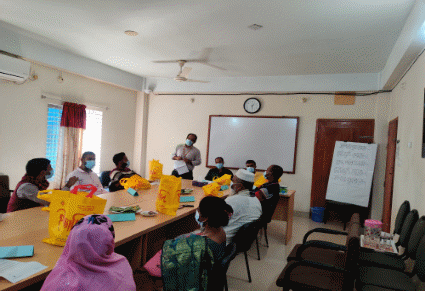
Focus group discussion session
- Qualitative rapid assessments
-
The SBS team of CHAMPS Bangladesh also utilizes an applied method on topic-specific and site-specific emerging issues employing a quicker framework methodology to obtain actionable recommendations in solving/advancing/dealing with the specific phenomenon or issue. The team carries out a wide range of rapid assessments throughout the year, some of which are periodical and some are based on need and priority for the site.
TAs part of rapid assessments, the team periodically returns to the families who were approached to participate in MITS procedure, after experiencing a stillbirth or child death in the study hospitals or at home and explores the factors that contributed families’ decisions for agreeing or disagreeing in MITS procedure. Then the team assesses families’ perspectives and their informed motivators or concerns related to MITS to generate actionable recommendations to guide the consent process by addressing gaps or modifying the approach strategy.he SBS team of CHAMPS Bangladesh also utilizes an applied method on topic-specific and site-specific emerging issues employing a quicker framework methodology to obtain actionable recommendations in solving/advancing/dealing with the specific phenomenon or issue. The team carries out a wide range of rapid assessments throughout the year, some of which are periodical and some are based on need and priority for the site.
Moreover, the SBS team accompanied the MITS result sharing team who returned to the MITS participant families to share cause of death report along with preventive messages and captures participants’ acceptance, queries, opinion and our team’s responses through observation and thereby share actionable recommendation for further improvement of the activity.
2. Community engagement activities:
Community engagement activities of SBS component help to establish trust between CHAMPS staff and the community as a whole. The overall goal of the community engagement is to develop and implement activities that help align CHAMPS Bangladesh site with local community values, views, needs, priorities, expectations, interests and concerns in relation to CHAMPS activities with a long-term impact on improving maternal and child health working in partnership local communities. In addition, community engagement is essential for reaching consensus with key community stakeholders on the proposed objectives. Community participation will focus on eliciting feedback from community members-at-large and from representative community leaders.
The specific objectives of the community engagement are-
- to increase the feasibility of carrying out CHAMPS mortality and pregnancy surveillance in the community
- to build partnerships with existing, trusted community organizations and key leaders already at work to improve maternal and child health
- to develop and sustain activities that demonstrate respect for the community and reflect the communities’ priorities related to maternal and child health
- Key activities
-
To attain the trust and involvement of community people to the CHAMPS, community engagement team conduct several activities to engage community people and respond to community queries, concern and questions related to CHAMPS:-
i) Courtyard and tea-stall meeting with community people and explain about CHAMPS activities including implementation of minimally invasive tissue sampling (MITS) using needle, to identify the cause of death among
ii) Group meetings with community-level religious, cultural, political/ administrative representatives as well as local-level health service professionals from the public, private, faith-based, and traditional sectors.
iii) Demonstrate respect to families, who have lost their children, through participating in religious and community rituals (funeral prayer and Fateha) that honor children in the community who have died.
iv) CHAMPS community champions are selected community residents who have immediate experiences with MITS consent approach, MITS participation and supports towards CHAMPS activities. These persons can share their experiences to other deceased parents and family members which may strengthen trust between CHAMPS and community residents, eventually support decision making of deceased parents when approached for MITS.
v) Offer community feedback session in courtyard on CHAMPS activities and aggregated MITS results to the general community residents including pregnant women, their family members, mothers of young children under 5 years of age. The meeting provides an opportunity to inform participants the major cause of child death and prevention strategy and their responses to the information.
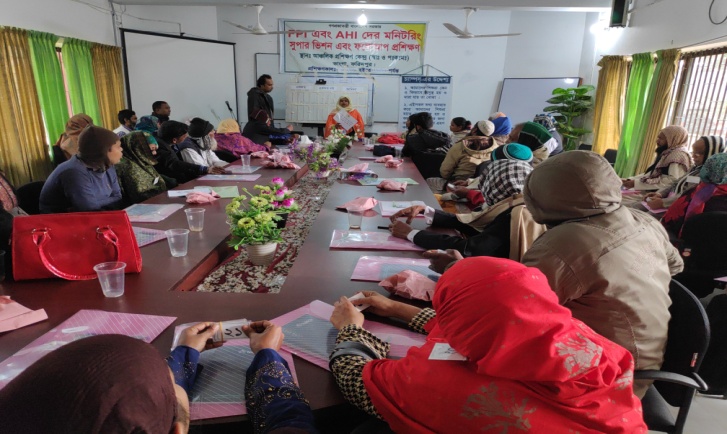

Meeting with different level community stakeholders and community people


